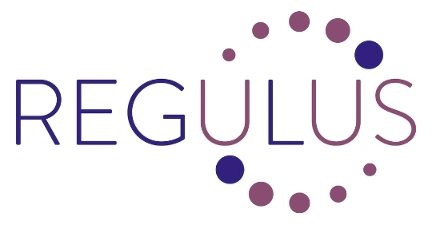Setback in Regulus Candidate for Alport Syndrome Treatment Expected to Be Temporary

Regulus is leveraging its oligonucleotide drug discovery and expertise to develop innovative medicines that target microRNAs for the treatment of several diseases, including Alport syndrome.
MicroRNAs are small non-coding RNA molecules that regulate most genes in plants, animals, and some viruses. According to Regulus, a single microRNA can target and regulate hundreds of genes. The company’s leading therapy candidates are RG-101 for chronic hepatitis C virus infection and RG-012 for Alport syndrome.
Alport syndrome (AS) is a hereditary disorder of the basement membranes of the kidney, eye and ear. Defective genes for the “collagen” proteins in the basement membranes may cause progressive loss of renal function, deafness, and eye abnormalities.
The National Institutes of Health Genetics Home Reference says people with Alport syndrome experience hearing loss in late childhood or early adolescence due to abnormalities of the inner ear. Misshapen lenses in the eyes (anterior lenticonus), and abnormal coloration of the eyes’ retina seldom lead to vision loss. Typically, progressive loss of kidney function eventually results in end-stage renal disease (ESRD) that requires dialysis or kidney transplant.
Patients with Alport syndrome may account for 2.5 percent of all kidney transplants in the U.S.
Prevalence of mutations in the collagen IV family of genes is estimated to be one in 5,000 people. Type IV collagen is important for maintaining integrity of the glomerular basement membrane (GBM), a vital component in the kidney’s structure and filtration process. The collagen gene mutation results in thickening of the GBM and impairment of glomerulus filtration. With no approved therapies, Alport syndrome is a disease with an urgent unmet medical need.
RG-012, under development by the California-based Regulus in alliance with Sanofi Genzyme, was granted orphan drug status from the U.S. Food and Drug Administration (FDA) and the European Commission. It is a single stranded, chemically modified oligonucleotide that binds to and inhibits the function of miR-21 — a mammalian microRNA — for treatment of Alport syndrome.
In preclinical studies, RG-012 demonstrated potent inhibition of miR-21 in vitro and in vivo. In an experimental mouse model of Alport syndrome, the therapy demonstrated a decrease in the rate of renal fibrosis progression and an increase in the lifespan of the mice by up to 50 percent. In its collaboration with Sanofi Genzyme, Regulus is responsible for advancing RG-012 to the proof-of-concept stage of development at which point Sanofi Genzyme can choose to assume worldwide development and commercialization of RG-012 (subject to a co-promote right in the U.S. by Regulus).
In December 2015, Regulus completed a Phase I trial in humans. The U.S. study was randomized, double-blind, placebo-controlled, and single ascending to evaluate the safety, tolerability, and pharmacokinetics of skin-injected RG-012. The therapy was well-tolerated by 40 healthy subjects who showed no serious adverse events. All completed the study. The company expects to use the Phase I study results and results from its ongoing ATHENA Natural History Study to design Phase 2.
Development of the drug suffered a setback this week. According to CNA Finance, the clinical trial of RG-012 suspended dosing and is now stepping backward to healthy volunteers.
The news coincided with a report that there will be a delay in submission of Regulus’ other lead product candidate RG-101 — an anti-miR targeting miR-122 to treat hepatitis C virus (HCV) infection — for regulatory approval. The news caused a steep decline in Regulus stock. Development is continuing.
 In a Nov. 1 announcement of the company’s latest financial results, Paul Grint, M.D., president and CEO of Regulus, noted that its third quarter focus included advancement of the RG-012 development program.
In a Nov. 1 announcement of the company’s latest financial results, Paul Grint, M.D., president and CEO of Regulus, noted that its third quarter focus included advancement of the RG-012 development program.
“We continue to be excited with the progress of our research programs, and look forward to sharing an update at our first R&D day on December 6,” Grint said in a press release.
In September, the company began the HERA study, an international double-blind and placebo-controlled, multi-center Phase 2 clinical trial to evaluate the safety, pharmacodynamics, pharmacokinetics, dose selection, and preliminary effectiveness of weekly RG-012 injections in approximately 30 patients with Alport syndrome, according to the press release. In order to address study design comments from European regulators, a multiple-ascending (MAD) dose study in healthy volunteers will be implemented prior to expanding to Alport patients. The MAD study will likely be completed in the first half of 2017. Interim results from HERA are expected in the first half of 2018.
Regulus will present two posters at American Society of Nephrology (ASN) Kidney Week Nov. 18-19 in Chicago. For more information, visit https://www.regulusrx.com.







Leave a comment
Fill in the required fields to post. Your email address will not be published.